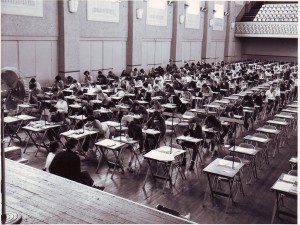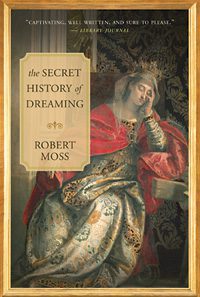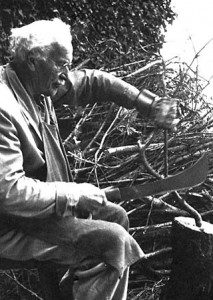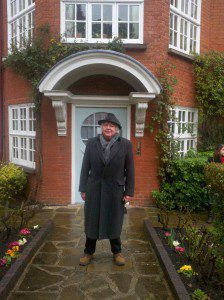
Have you dreamed you are in school, having to take a test for which you are unprepared? You are not alone; this is a very common dream theme. If you have finished school and do not have to take any literal exam ahead of you, a dream of this sort may be speaking to you about a new test that life is presenting to you. After all, life itself is a school.
However, if you or your kid is facing a literal exam, it’s worth thinking about whether a dream of this kind may be a literal rehearsal, offering information you could use to dream better. One of the reasons I did very well at exams in my last years of high school was that I sometimes dreamed exam questions ahead of time, which clued me in to how I should approach my last-minute prep.
I came across a fascinating account of how dreaming exam questions ahead of time aided the career of a famous scholar, E.A.Wallis Budge, who produced many important works on ancient Egypt, including a celebrated edition of the Egyptian Book of the Dead, during his long tenure at the British Museum. His career might never have gotten off the ground had he not dreamed, in exact detail, what would happen in a locked room where he would be presented with green examination papers containing certain Assyrian texts for translation.
Budge recounted the episode to his friend H. Rider Haggard, the famous author of King Solomon’s Mines and She, and Haggard retold it in his autobiography. I’ll let Haggard (no mean raconteur, who fired my imagination with his adventure tales when I was a boy) tell the story as he narrated it in his autobiography:
“When he was at Cambridge Dr. Peile of Christ’s offered [Budge] an exhibition if he would be examined in Assyrian, and as Budge’s funds were exiguous he was very anxious to get the exhibition. An examiner, Professor Sayce of Oxford, was found to set the papers–four in all–and the days for the examination were fixed.
“The night before the day of the examination Budge dreamed a dream in which he saw himself seated in a room that he had never seen before–a room rather like a shed with a skylight in it. The tutor came in with a long envelope in his hand, and took from it a batch of green papers, and gave one of these to Budge for him to work at that morning. The tutor locked him in and left him. When he looked at the paper he saw it contained questions and extracts from bilingual Assyrian and Akkadian texts for translation. The questions he could answer, but he could not translate the texts, though he knew them by sight, and his emotions were so great that he woke up in a fright. At length he fell asleep, but the dream repeated itself twice, and he woke up in a greater fright than before.
“He then got up–it was about 2 A.M.–went downstairs to his room, lighted a fire, and, finding the texts in the second volume of Rawlinson’s great work, found the four texts and worked at them till breakfast-time, when he was able to make passable renderings of them.
“He went to College at nine, and was informed that there was no room in the Hall, it being filled by a classical examination, and that he must go into a side room near the kitchens. His tutor led him to the room, which was the duplicate, skylight and all, of the one he had seen in his dream. The tutor took from his breast pocket a long envelope, and from it drew out several sheets of green paper similar to that of the dream, and gave Budge the examination paper for that morning, saying that it was green because Sayce, on account of delicate eyesight, was obliged to use green paper when writing cuneiform. The tutor then turned, said he would come back at twelve, and, going out, locked the door behind him as Budge saw him do in the dream.
“When he sat down at the table and looked at the paper he saw written on it the questions and four pieces of text for translation, and the texts were line for line those which he had seen in his dream. Surprise at his good fortune prevented him from writing steadily, but at length he got to work and had finished the paper before the tutor appeared and unlocked the door at noon. The three other papers were easier, and Budge got the exhibition–for him a very vital matter.”
Rider Haggard goes on:
“I asked Budge if he could explain the matter, or account for it in any way, and he said,'”No. My mother and maternal grandmother both had dreams of this sort from time to time when they were in any kind of difficulty, and in their dreams they were either shown what to do or were in some way helped. Being very pious folk, they regarded these dreams as the work of Divine Providence, who wished for some reason to help them out of trouble or difficulty. For myself, I could never imagine Providence troubling about any examination, but I was quite overcome for a time with astonishment at my good luck.'”


